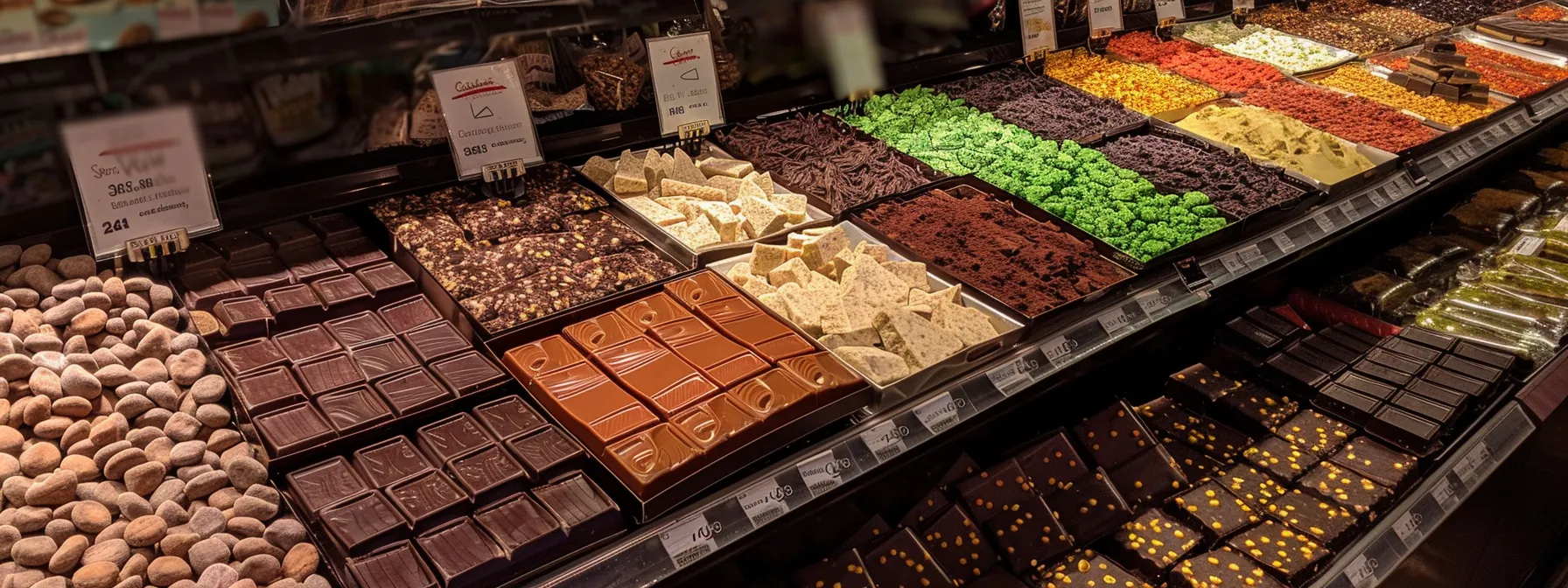Decadent and Dairy-Free: The Rise of Vegan Chocolate
Once a niche market offering, vegan chocolate has erupted into the mainstream, delighting the palates of chocolate lovers who seek indulgence without animal products. The popularity of vegan chocolate mirrors the growing interest in plant-based diets and more ethical consumption patterns. Below ,we’ll delve into what makes vegan dark chocolate not just an ethical choice, but a delectable one.
Exploring the Popularity Surge of Dairy-Free Chocolate in the Mainstream Market

The expansion of plant-based chocolate into the mainstream market is a reflection of the broader trend toward plant-based eating. Factors such as lactose intolerance, environmental concerns, and animal welfare are influencing customers to seek out dairy-free alternatives. Vegan dark chocolate fits this bill perfectly, offering a treat that’s accessible to a diverse consumer base with various dietary restrictions and preferences.
Moreover, social media and influencer marketing have introduced a wider audience to the benefits and availability of plant-based chocolate. Innovative marketing strategies, often highlighting the ethical sourcing and health benefits of plant-based chocolate, are capturing the interest of conscious consumers. Retailers are responding by dedicating more shelf space to these products, making them more visible and accessible.
Consumer tastes are evolving, and with this, their expectations of quality in plant-based products have risen. Plant-based chocolate is no longer seen as a compromise but as a first-rate confectionery option. The rise in gourmet plant-based chocolate offerings that use high-quality cacao and unconventional ingredients is a testament to this paradigm shift.
The Health and Environmental Perks of Going Dairy-Free With Chocolate

Choosing plant-based chocolate comes with a variety of health benefits that are appealing to the wellness-conscious consumer. These chocolates typically contain a higher percentage of cocoa solids, which are rich in antioxidants and can contribute to cardiovascular health. The absence of dairy also means they’re often lower in cholesterol and can be suitable for those with dairy allergies or lactose intolerance.
From an environmental perspective, dairy-free chocolates offer a sustainable alternative to traditional chocolates. The production of dairy products has a significant environmental footprint, including higher water usage and greenhouse gas emissions. By eliminating dairy, vegan chocolates reduce the strain on natural resources, contributing to a more sustainable food system.
The use of plant-based milks such as almond, soy, or coconut milk not only provides the creamy texture that most chocolate lovers crave but also brings its own set of nutrients. In addition, these milks often have a lower environmental impact compared to cow’s milk, which further enhances the sustainability profile of vegan chocolates.
Much of the plant-based chocolate industry is also closely allied with fair trade practices, ensuring that farmers receive a fair wage for their crops. This economic model promotes better labor conditions and more sustainable farming practices, enhancing the appeal of plant-based chocolate for those concerned with social responsibility.
Mastering the Art of Crafting Dairy-Free Chocolate: Key Ingredients and Techniques
The art of crafting delectable plant-based chocolate hinges on the selection of high-quality base ingredients, such as cocoa beans and cocoa butter. These ingredients ensure that the richness and depth of flavor associated with traditional chocolate are preserved in the dairy-free variety. Natural sweeteners like maple syrup, coconut sugar, or dates are often used to complement the bitterness of the bean without the need for refined sugars.
Textural excellence is another cornerstone of premium plant-based chocolate. Chocolatiers have honed their craft to achieve the silky-smoothness that’s expected from high-quality chocolate. This often involves meticulous tempering processes and the use of emulsifiers like soy lecithin to prevent the separation of ingredients and ensure an even consistency.
The versatility of plant-based chocolate is further expanded by the use of various plant-based milk alternatives. Each type of milk imparts its own unique flavor and characteristics to the chocolate, allowing for a broad spectrum of taste experiences. Nuts and spices can also be incorporated to create sophisticated flavor profiles that rival their dairy-containing counterparts.
Overall, the ascent of plant-based chocolate is a testament to the evolving tastes and values of today’s consumers. As we become more mindful of our dietary choices and their impact on the ecosystem and society, plant-based chocolate stands out as a delectable symbol of change within the confectionery industry. With its rich flavors, ethical foundations, and burgeoning market presence, the future shines brightly for this dairy-free delight.































